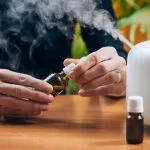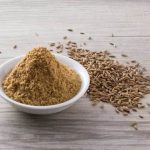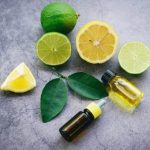Are you interested in learning about the art and science of aromatherapy? Look no further, as we have compiled a comprehensive free aromatherapy curriculum to help you get started on your journey. Aromatherapy is the practice of using essential oils and natural plant extracts to promote physical and mental well-being. In this article, we will delve into the basics of understanding aromatherapy and how it can benefit you personally and professionally.
Aromatherapy has been gaining popularity for its holistic approach to healing and relaxation. In our first section, we will provide an introduction to the practice, breaking down its principles and techniques. We will also explore the various benefits of aromatherapy, diving into the healing properties that make it a popular choice for natural health enthusiasts. Additionally, we will take a closer look at the rich history of aromatherapy, tracing its roots back to ancient civilizations.
As you navigate through this free aromatherapy curriculum, you will gain insight into how to get started with your studies. From finding the right resources to exploring essential oils and their basic properties, we will equip you with the knowledge needed to kickstart your aromatherapy journey. This comprehensive curriculum also includes hands-on training exercises and activities for practical application, as well as information on career opportunities in the field of aromatherapy.
Lastly, we will point you towards additional resources and support networks to supplement your learning experience. Whether you are an aspiring aromatherapist or simply looking to enhance your well-being through natural remedies, this free curriculum is designed to guide you every step of the way.
The Benefits of Aromatherapy
Aromatherapy has been used for centuries as a natural way to promote physical and mental well-being. The practice involves using essential oils extracted from plants to promote healing and relaxation. These oils can be inhaled, applied to the skin, or even ingested in some cases. In recent years, aromatherapy has gained popularity as an alternative or complementary therapy for a wide range of conditions, including stress, anxiety, insomnia, headaches, and muscle pain.
One of the key benefits of aromatherapy is its ability to reduce stress and anxiety. Certain essential oils have been found to have calming properties that can help to ease feelings of tension and promote relaxation. For example, lavender oil is often used to help relieve stress and improve sleep quality. Other oils, such as bergamot and chamomile, have also been shown to have a positive impact on mood and anxiety levels.
In addition to its mental health benefits, aromatherapy can also be effective in addressing physical ailments. Many essential oils possess anti-inflammatory, analgesic, and antimicrobial properties that can be beneficial for alleviating pain, reducing inflammation, and fighting off infections. For example, peppermint oil may help with headaches and digestive issues, while tea tree oil has antiseptic properties that make it useful for treating wounds and skin conditions. These healing properties make aromatherapy a valuable tool for promoting overall wellness.
| Benefit | Description |
|---|---|
| Stress Reduction | Aromatherapy uses essential oils with calming properties that can alleviate tension and promote relaxation |
| Physical Healing | Essential oils possess anti-inflammatory, analgesic,and antimicrobial properties that can alleviate pain,reducing inflammation,and fighting off infections. |
History of Aromatherapy
The history of aromatherapy is rich and dates back thousands of years, with evidence of its use found in ancient civilizations such as Egypt, China, and India. These early practitioners utilized the healing properties of plant extracts and essential oils for medicinal, spiritual, and cosmetic purposes. Aromatherapy has been a fundamental part of traditional medicine in various cultures, playing a role in rituals, ceremonies, and everyday life.
One of the earliest recorded uses of aromatherapy can be traced back to 3,500 B.C. in Ancient Egypt, where essential oils were used for embalming and in religious ceremonies. The Egyptians also used aromatic oils for medicinal purposes such as treating skin conditions and other ailments.
In China, the use of aromatic plant extracts was integrated into Traditional Chinese Medicine to promote physical well-being and balance energy within the body. Similarly, Ayurveda in India has long incorporated the use of essential oils to balance doshas (bodily energies) and foster holistic wellness.
Understanding the historical roots of aromatherapy provides invaluable insight into its cultural significance and enduring popularity. By studying ancient practices from various civilizations, students gain a deeper appreciation for the tradition that underpins modern aromatherapy techniques.
| Country | Earliest Recorded Use |
|---|---|
| Egypt | 3,500 B.C. |
| China | Ancient times |
| India | Ancient times |
How to Get Started
When it comes to starting out in aromatherapy, finding the right curriculum can be crucial to your success in the field. Fortunately, there are many free resources available for individuals who want to learn about aromatherapy and its benefits. Whether you are just curious about the practice or have ambitions of pursuing a career in aromatherapy, there are several options for accessing free aromatherapy curriculum.
Online Courses
One of the easiest ways to get started with aromatherapy is by enrolling in online courses that offer free curriculum. Many reputable organizations and schools provide introductory courses on aromatherapy that cover topics such as essential oils, blending techniques, and safety guidelines. These courses often come with downloadable materials and videos that allow students to study at their own pace.
Workshops and Seminars
In addition to online courses, workshops and seminars can be valuable resources for those looking to learn more about aromatherapy. Many experts in the field offer free workshops that provide hands-on training and practical exercises for individuals interested in exploring the world of essential oils. These events can also be a great way to network with other like-minded individuals and professionals in the industry.
Local Community Resources
Another way to access free aromatherapy curriculum is by taking advantage of local community resources such as libraries, wellness centers, and health food stores. Some of these establishments offer free classes and informational sessions on aromatherapy, providing participants with a basic understanding of the practice and its potential benefits. These resources can also serve as a gateway to further education and training opportunities in the field of aromatherapy.
Exploring Essential Oils
Aromatherapy is a holistic healing treatment that uses natural plant extracts to promote health and well-being. Essential oils are the key ingredients used in aromatherapy, and it is essential for students to have a deep understanding of these potent substances. Exploring essential oils is a crucial part of any free aromatherapy curriculum, as it lays the foundation for the practice and its potential benefits.
To get started with exploring essential oils, students can begin by familiarizing themselves with the most commonly used essential oils in aromatherapy. Some popular options include lavender, peppermint, eucalyptus, tea tree, and lemon. Understanding the properties and potential benefits of each oil is important in learning how to effectively incorporate them into wellness practices.
Another important aspect of learning about essential oils is understanding their different applications. Whether it’s through inhalation, topical application, or ingestion (in some cases), essential oils can be used in various ways to achieve different therapeutic effects. This knowledge is crucial for students looking to harness the full potential of aromatherapy in promoting physical and emotional well-being.
Furthermore, students should also learn about the safety considerations when using essential oils. This includes proper dilution methods, potential contraindications for certain medical conditions or medications, and being aware of any potential allergic reactions. By gaining a comprehensive understanding of these factors, students can ensure that they are using essential oils safely and effectively in their practice.
- Familiarize yourself with commonly used essential oils
- Understand the properties and benefits of each oil
- Learn about different applications of essential oils
- Explore safety considerations when using essential oils
Hands-on Training
Aromatherapy is not only about understanding the theory behind essential oils and their properties, but also about practical application. Hands-on training is a crucial part of any aromatherapy curriculum as it allows students to apply what they have learned in a real-world setting. Here are some practical exercises and activities for aromatherapy students to enhance their learning experience:
1. Blending Workshops: One of the most important skills for an aromatherapist is the ability to create effective essential oil blends. Many free aromatherapy curriculums offer workshops or tutorials on blending different oils to achieve desired therapeutic effects. These workshops often provide step-by-step guidance on creating custom blends for various purposes such as stress relief, relaxation, or immune support.
2. Case Studies and Client Consultations: Engaging in simulated case studies and client consultations can give students a taste of what it’s like to work as a professional aromatherapist. This hands-on experience helps them develop communication skills, gain confidence in recommending essential oil treatments, and understand the individual needs of clients.
3. Aromatherapy Product Making: Another valuable activity for aromatherapy students is learning how to make various products using essential oils, such as massage oils, balms, lotions, and room sprays. Creating these products not only reinforces knowledge of essential oil properties but also provides practical experience in product formulation and safety guidelines.
By engaging in these practical exercises and activities, students can deepen their understanding of aromatherapy concepts while gaining valuable skills that will prepare them for a successful career in this field. Additionally, by seeking out free aromatherapy curriculum that includes hands-on training components like the ones mentioned above, aspiring aromatherapists can ensure they are receiving a comprehensive education that goes beyond just theoretical learning.
Career Opportunities
A career in aromatherapy can be both personally and professionally rewarding. By completing a free aromatherapy curriculum, individuals can gain the knowledge and skills needed to pursue various opportunities within this field. Whether you aim to become a certified aromatherapist, work in a spa or wellness center, or even start your own business, there are numerous career paths to explore.
Professional Certification
One of the main advantages of completing a free aromatherapy curriculum is the potential to become a certified aromatherapist. Many programs offer certification upon completion, which can lend credibility and legitimacy to your practice. By gaining this professional recognition, you can enhance your career prospects and establish yourself as a qualified practitioner in the eyes of clients and employers.
Employment Opportunities
With a solid foundation in aromatherapy obtained through a free curriculum, individuals can seek employment in various settings, including spas, holistic health centers, wellness resorts, and even hospitals. Many employers value candidates with training in complementary therapies like aromatherapy, making it easier to secure positions as an aromatherapist or wellness consultant.
Entrepreneurial Endeavors
For those interested in starting their own business, completing a free aromatherapy curriculum can provide the necessary knowledge and skills to establish a successful practice. Whether opening a private consultation practice or selling essential oils and related products online, entrepreneurship opportunities abound for trained aromatherapists. Additionally, having completed a recognized program can help attract clients and build reputation within the industry.
Resources and Support
In conclusion, learning about aromatherapy can be an enriching experience, and finding the right resources is crucial for success. With the increasing popularity of alternative medicine and holistic practices, there is a growing demand for well-trained aromatherapists. Fortunately, there are numerous free aromatherapy curriculums available online that provide comprehensive education in this field. By taking advantage of these resources, aspiring aromatherapists can gain the knowledge and skills needed to embark on a rewarding career in aromatherapy.
One of the best ways to access free aromatherapy curriculum is through reputable educational websites and online platforms dedicated to holistic health and wellness. These websites often offer a wide range of courses, tutorials, and learning materials designed to help students understand the principles of aromatherapy and its practical applications. In addition to the basic curriculum, they may also provide access to additional resources such as e-books, webinars, and forums where students can interact with instructors and peers.
Furthermore, local community centers or organizations specializing in holistic health may also offer free workshops or classes on aromatherapy. These opportunities can provide hands-on training and practical experience in using essential oils for therapeutic purposes.
Additionally, individuals who are serious about pursuing a career in aromatherapy should consider joining professional associations or networks that offer access to exclusive learning materials and mentorship programs. Overall, with the right support and access to free aromatherapy curriculum, anyone can explore this ancient practice and its potential for personal enrichment and professional success.
Frequently Asked Questions
What Qualifications Do You Need to Practice Aromatherapy?
To practice aromatherapy, it is important to have a strong knowledge of essential oils and their properties, as well as an understanding of how to properly use them for therapeutic purposes. Many professionals in this field also pursue certification or training programs to enhance their skills and knowledge.
What Is the Best Aromatherapy Course?
The best aromatherapy course will depend on individual preferences and needs. It is important to look for courses that are accredited by reputable organizations, taught by experienced professionals, and offer a comprehensive curriculum that covers both the theoretical and practical aspects of aromatherapy.
Where Can I Learn About Aromatherapy?
There are many options for learning about aromatherapy, including online courses, workshops, seminars, and formal training programs offered by schools or institutes specializing in holistic health and wellness. Additionally, there are numerous books and resources available for self-study on the subject of aromatherapy.

Are you looking for a natural way to improve your health and wellbeing?
If so, aromatherapy may be the answer for you.





